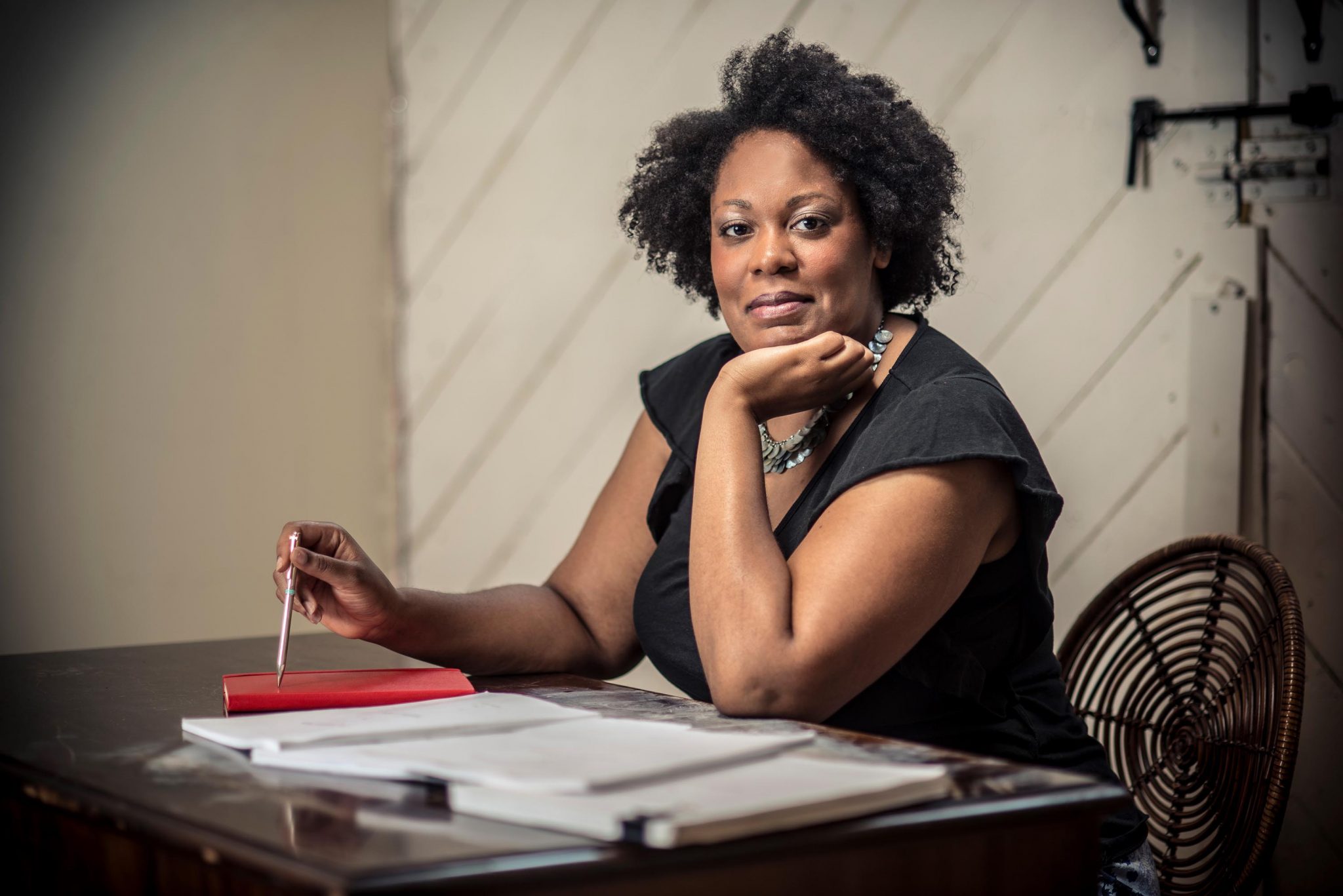
A group of cis-women, trans-women, and non-binary playwrights are joining forces to produce more than a dozen plays and monologues about Black, Indigenous, and other women of color who have died at the hands of police. Jacqueline Lawton, an assistant professor of dramatic art at the University of North Carolina at Chapel Hill, is helping organize these performances in collaboration with a theater advocacy and action group called Honor Roll!
These readings and reflections are inspired by the #SayHerName campaign, which brings awareness to the names and stories of Black women and girls who have been victims of police violence, and the murder of George Floyd. Each one will be eight minutes and 46 seconds in length to mark the time that an officer knelt on Floyd’s neck, ultimately leading to his death.
“It is devastating that women and trans-women who are killed by police do not get as much attention or justice as black men,” Lawton says.
The plays will be performed virtually on October 22-23 and will include two keynotes. Lawton will moderate the discussions that take place between performances.
While Lawton will not be writing a piece for the event, she has already written and produced a series of plays on the experiences of underrepresented communities. Her inspiration for this work stems from global events that impact marginalized peoples. She has written about a range of topics from the impacts of World War II on Jewish refugees living in the United States to the struggles of Iraqi nationals trying to navigate a post-9/11 world. She has also written many plays on Black lives.
“I’m fascinated by the world, the way the world works,” Lawton says. “And, by that, meaning systems in place that have these invisible spoken rules. What happens when people disrupt those unspoken rules? There’s conflict, and conflict is at the center of all drama.”
Most recently, Lawton wrote “XIX,” inspired by the 100-year anniversary of the passing of the 19th Amendment, which gave women the right to vote. The play follows an interracial family and their fight for suffrage.
“When you’re taught this story in school, depending on your teacher, you typically don’t hear about the Black women who contributed to the movement,” Lawton says. “You don’t hear about indigenous women or Latinx women. And you don’t hear about the white women who actively fought against allowing women of color to have the right to vote.”
A few years prior, she started writing another play when the federal government began talks to end the Deferred Action for Child Arrivals (DACA) program — a policy protecting nearly 700,000 immigrants from deportation. That same year, in 2017, the government canceled the protection status for the more than 50,000 Haitian immigrants who took refuge in the United States after a catastrophic earthquake devastated the island nation in 2010.
“So at the same time the attack on DACA was going down, Haitian protections were going to be rolled back,” Lawton says. “And I was like, Wait a second. This is not right.”
She began searching for more information about what this would mean for Black immigrants and found very little.
“I knew I had to write a play about it,” Lawton says. “That story needed to be told — and mainstream media wasn’t telling it.”
In response, Lawton wrote “So Goes We,” which addresses not only the lives of the Haitian immigrants losing their protections but the struggles of the immigration lawyers responding to the constant changes in immigration laws in order to protect their clients.
Lawton has also written plays on Princeville, North Carolina, the oldest Black town in America, founded by freed slaves after the Civil War; and on the corruption that takes place within the juvenile justice system.
Lawton admits that writing the plays is the easy part; producing them is another story. The American theater has a long history of producing plays written and performed by white men only.
“The tradition of American theater is as old as America,” Lawton says. “Artistic directors are still preferencing whiteness and white plays and the white experience, which makes it impossible for others’ stories to come through. At the center of my work you’re going to find women, mostly Black women but also other women of color.”
Lawton strives to change these confines of American theater and to drive the conversations about civil rights through her storytelling.
“At the end of my plays, I want audience members of all ages, races, genders, nationalities to say, ‘There’s some unlearning I can do about how I perceive the world and interact with the people in it.’ So there’s knowledge building happening,” Lawton says.
“And with that knowledge building comes curiosity and compassion,” Lawton continues. “Not everyone walks away with a solid stance of, This matters to me and I’m going to make a change – because that doesn’t happen all the time with anyone. But it does happen. I’m just happy for a shift in the way of thinking, even if it’s a slight shift. It opens up the curiosity to learn about something that’s not what they’re familiar with.”
Jacqueline Lawton is an assistant professor of playwriting, play analysis, theater for social change, and dramaturgy in the Department of Dramatic Art within the UNC College of Arts & Sciences.
By Alyssa LaFaro, Endeavors, part of UNC Research’s “In Pursuit” series
